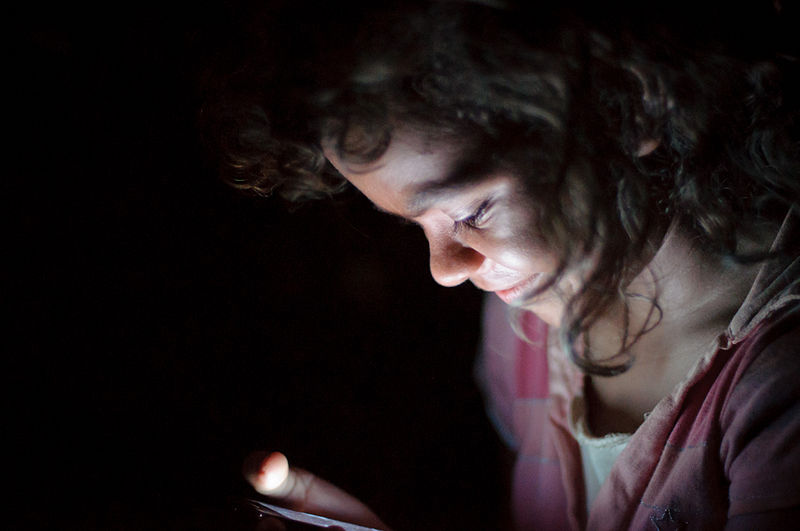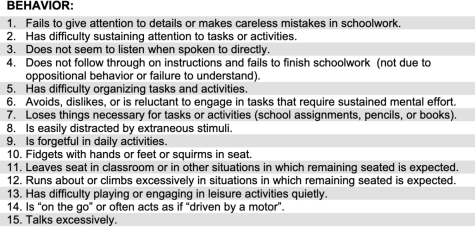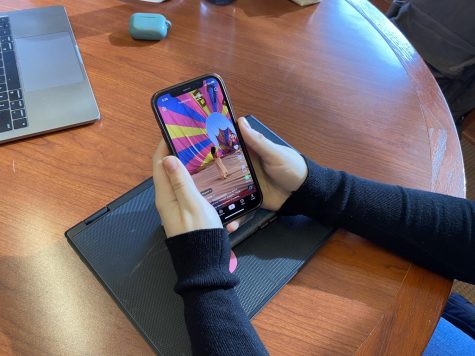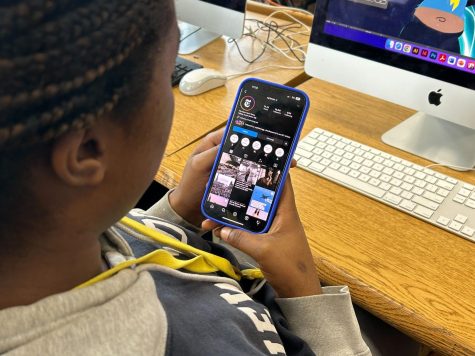Parents should wait: Smartphones and social media open doors that aren’t right for younger kids
We live in an age of exponentially changing technology that many deem unavoidable. Because our social lives have become dependent on digital communication, parents have begun to give their kids smartphones at a younger age.
I got my first phone, a Motorola Razr flip phone, in fourth grade. I was swimming at a club almost every day after school and practices tended to end at sporadic times, so my parents needed me to call them when it was time to pick me up. I was allowed to call three phone numbers: my mom’s, my dad’s and my house’s. Texting was off limits.
I was premature. The general rule among parents at Colonial School was to get phones for their kids as a fifth-grade graduation present. Even then, most kids sported flip phones, or, if they were lucky, slide phones with their own keyboards. I remember walking around after school towards the end of the year as everyone in my grade excitedly exchanged phone numbers. It wasn’t until later on in middle school that most kids, including myself, got their first smartphone.
The average age to receive a first smartphone has dropped to 10.3 years old, according to a 2016 study by Influence Central. However, as I occasionally pick up my third-grade brother after school, I see kids as young as seven bending their heads over iPhones. In part, as a result of social pressures, iPhones are seen by some as a necessity. Social media references and smartphone games seem to dominate younger kids’ conversations. It’s understandable if kids feel like social pariahs when they aren’t able to relate to what others are talking about.
Despite these pressures, it’s important for parents to wait. When kids are given smartphones, they’re also given a certain amount of freedom. What that usually results in is an immediate adoption of social media.
Social media is addictive. Whether it’s scrolling through all the posts not seen on Facebook or viewing all of our friends’ stories on Snapchat, we feel this inexplicable need to be up to date with what everyone else is doing. Moreover, apps like Instagram have Explore pages, which feature countless posts that are “selected automatically based on things like the people you follow or the posts you like,” according to the Instagram Help Center.
These features make it easy to waste time and procrastinate. I have sat down for a five-minute break on social media that turned into an hour-long session. It’s not until we ask ourselves whether we would be able to go a day or two without the social networks that we realize the extent of social media addiction.
Social media also causes young people to attempt to set out an idealized image of themselves. Many experience anxiety over how their pictures look, the number of followers and likes they have or how many people comment on their posts. Snapchat filters, which lengthen eyelashes, make cheekbones more angular, smooth skin and create an unrealistic body image, all cause insecurities. One study found that these pressures from social media are associated with less satisfaction and in-the-moment happiness with life.
Excessive smartphone use also cuts childhood short. Parents may notice that their kids don’t go out to play with their friends as often when they can text or Snapchat them instead. Whether digital communication can really replace in-person, organic human interaction is questionable. Another study found that social media use caused people to feel more isolated.
After discussing the issues of smartphone use with my English class, I found that high schoolers are able to recognize these dangers and even act on them. However, younger kids are not mature enough to do so. Without considering the psychological repercussions, we are creating a new generation of kids that will grow up with social media and all its negative impacts. It is time for parents to consider these dangers and hesitate before giving their ten-year-old a smartphone.
Francesca Di Cristofano’s journalism career began in 2011 as a founding editor of the Colonial Times. She is now a senior at Pelham Memorial High School...


















